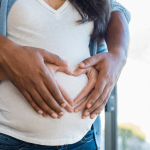This cohort study uses data from the 1999 to 2008 population-based Norwegian Mother, Father and Child Cohort Study, which is linked to the Medical Birth Registry of Norway, Norwegian Patient Registry, and Norwegian Prescription Database. Two populations of participants were identified. What the authors called the full sample included mothers and their live-born singleton infants, whereas the mental health sample was restricted to the offspring of mothers who reported anxiety, depression, or sleeping problems during pregnancy or during the six months prior to conception.
Maternal self-report of benzodiazepine and/or z-hypnotic use during pregnancy was categorized as early pregnancy exposure or middle and/or late pregnancy exposure. Cases of ADHD were idenified in the offshpring accorgind to diagnosis in the medical record or filled prescription for ADHD medication.
No Risk of ADHD in Children Prenatally Exposed to Benzodiazepines or Z-Hypnotics
The full sample comprised 82,201 pregnancies, and the mental health sample included 19,585 pregnancies; 681 offspring (0.8%) in the full sample and 468 offspring (2.4%) in the mental health sample were prenatally exposed to benzodiazepines and/or z-hypnotics. There was no evidence of an association between exposure to BZDs or Z-hypnotics in early pregnancy (hazard ratio, 0.74; 95% CI, 0.39-1.94) or middle and/or late pregnancy (hazard ratio, 0.76; 95% CI, 0.35-1.61) and risk of childhood ADHD. Nor did the researchers observe any evidence of substantial association between the number of medication-exposed intervals during pregnancy and risk for ADHD.
This study, combined with previous studies, provides reassuring information to women with questions regarding the use of benzodiazepines during pregnancy. Previous studies from the same group have shown no increase in internalizing or externalizing behavioral problems in children at 5 years of age (Sundbakk et al, 2019) with prenatal BZD or Z-hypnotic exposure. However, this group (Lupattelli et al, 2019) did note a moderate association of gross motor and communication deficits with late-pregnancy benzodiazepine/z-hypnotic use, although they noted that this association may be explained by residual confounding by indication and/or a higher drug dose regimen used in women with anxiety/depression.
The findings of the current study are also consistent with a large study carried out in Taiwan which included 76,411 children with exposure to a benzodiazepine during pregnancy. All of these studies discussed here are limited, however, by the fact that they include only limited information on the dosage and frequency of use. Because benzodiazepines may be used intermittently or regularly at a wide range of doses, it may be difficult to generalize across all populations of women using benzodiazepines during pregnancy. For example, can we assume that outcomes would be the same in a woman who uses low-dose alprazolam for anxiety while flying compared to a woman with severe panic disorder who uses clonazepam twice daily. Future studies are needed to compare outcomes in children stratified by dosage and frequency of use.
While the current study from Sundbaark includes z-hypnotic medications, there is generally more data regarding the benzodiazepines, and further research focusing specifically on the Z-hypnotics is warranted.
So what do we tell our patients? The current study and previous studies do not show a strong signal indicating risk of worse neurodevelopmental outcomes in children with prenatal exposure to benzodiazepines. Preliminary data regarding the Z-hypnotics is reassuring but further study is required.
Ruta Nonacs, MD PhD
Sundbakk LM, Gran JM, Wood ME, Handal M, Skurtveit S, Nordeng H. Association of Prenatal Exposure to Benzodiazepines and Z-Hypnotics With Risk of Attention-Deficit/Hyperactivity Disorder in Childhood. JAMA Netw Open. 2022 Dec 1; 5(12):e2246889. Free article.
Sundbakk LM, Wood M, Gran JM, Nordeng H. Impact of prenatal exposure to benzodiazepines and z-hypnotics on behavioral problems at 5 years of age: A study from the Norwegian Mother and Child Cohort Study. PLoS One. 2019 Jun 6. Free Article
Lupattelli A, Chambers CD, Bandoli G, Handal M, Skurtveit S, Nordeng H. Association of Maternal Use of Benzodiazepines and Z-Hypnotics During PregnancyWith Motor and Communication Skills and Attention-Deficit/Hyperactivity Disorder Symptoms in Preschoolers. JAMA Netw Open. 2019 Apr 5;2(4):e191435.








Leave A Comment